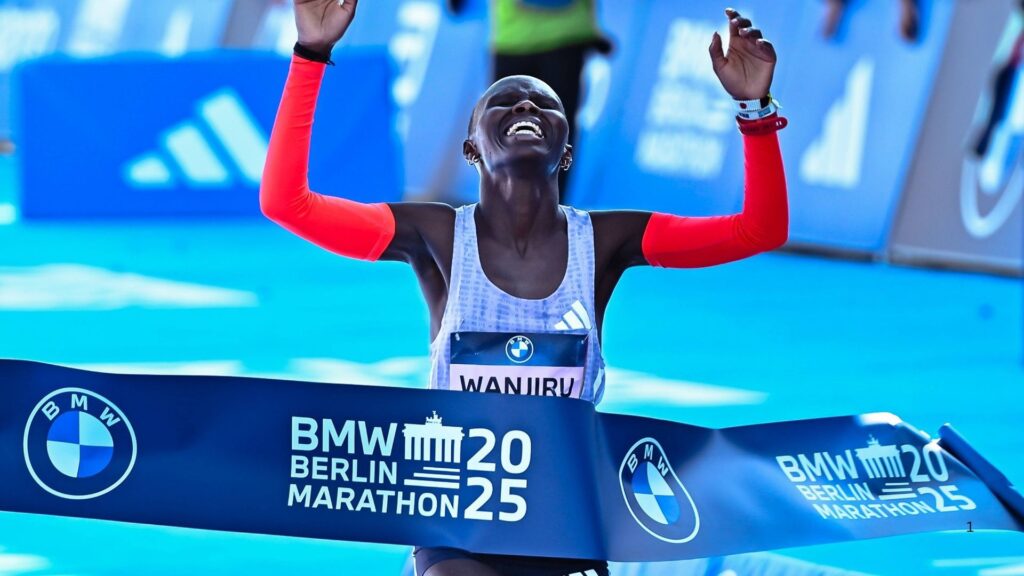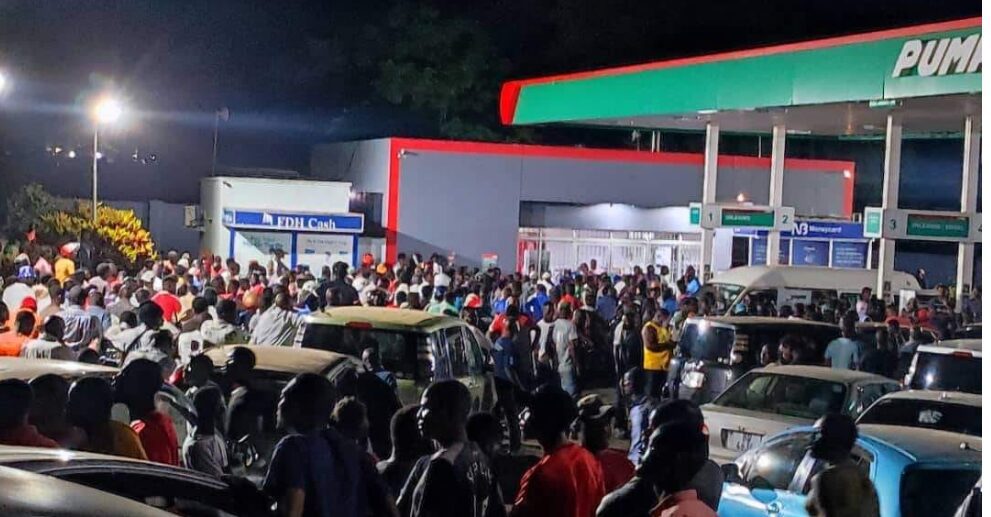
Monday 22nd September 2025

by inAfrika Newsroom
Berlin Marathon winners came from Kenya in both races. Sabastian Sawe won the men’s title in 2:02:16, the fastest of his season. Rosemary Wanjiru took the women’s race in 2:21:05, completing a Kenyan double on a warm, humid day. Officials reported large crowds along the route.
Sawe moved to the front early and never lost control. He passed halfway in 1:00:12, a split that kept him on world-record pace for much of the first two thirds. When the final pacer dropped at 23 km, the tempo eased. The gap to the record grew with every kilometre. Kelvin Kiptum’s 2:00:35 mark remained out of reach.
He still finished alone and clear. Sawe said the weather slowed him late. “I did my best,” he told reporters at the finish. Coaches praised the even early rhythm and the decisive move after 15 km. It was his third win in three marathons, following London in April and Valencia last year.
Japan’s Akira Akasaki claimed second. He produced a steady negative split and cut through fading rivals after 30 km. Ethiopia’s Chimdessa Debele took third. The pair crossed almost four minutes behind the winner. Their times reflected a quick front half and a slower run-in as the temperature rose.
The women’s race stayed tight until the last stretch. Wanjiru tracked the leaders and made her move on the final boulevard. She beat Ethiopia’s Dera Dida by three seconds. Azmera Gebru finished third for Ethiopia, closing out the podium. The margin underlined how tactical the race became in the final five kilometres.
Wanjiru called the win a relief after a difficult build-up. She leaned on pacing cues rather than splits on the watch. Her team had warned about the headwind sections late on the course. She conserved energy there and struck when shelter ended. The strategy delivered a decisive finishing kick.
Race organisers highlighted course support and medical coverage. The city deployed cooling stations and extra aid posts because of the humidity. Volunteers lined the turns with water and isotonic drinks. Elite fields reported no major incidents beyond routine cramps and dropouts. The start and finish zones ran on time.
Crowd numbers swelled near the Brandenburg Gate and Museum Island. Spectators pressed close to barriers in the final kilometre. The noise lifted as Sawe entered the long finishing straight. It lifted again when Wanjiru broke clear. The event maintained Berlin’s reputation for fast times and headline results.
Sawe’s win keeps him central to autumn race plans. Agents will now weigh a winter training block against appearance offers. A spring major remains likely in 2026, depending on recovery and sponsor goals. His pacing choices today suggest room for a faster attempt in cool conditions.
For Wanjiru, the victory resets expectations. She had managed injuries in past seasons and needed a clean build to test her ceiling. The close finish showed strong race sense and trust in her speed. Coaches will review her splits to plan whether to attack time or target another tactical win next spring.
Race analysts noted the day’s split patterns. Fast halves can set record pace but leave little margin against heat and headwinds. Both winners controlled surges and avoided panic when the clock drifted. Their choices reflect growing experience in championship-style city racing. Berlin rewarded composure more than raw aggression.
Berlins’s major status also helps sponsors and local tourism. The finish-line scenes will headline highlights reels. The double for Kenya adds to a deep season for East African distance running. Agents, coaches, and federations will parse these results to shape 2026 calendars. Today’s outcomes will inform who gets pacers, who chases times, and who targets wins.


